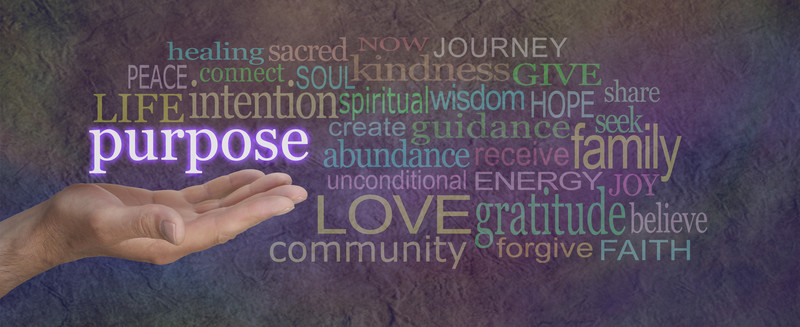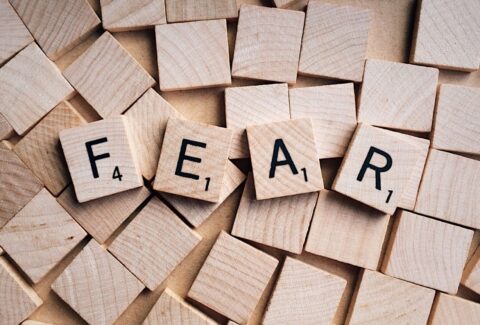What is Your Purpose?
Etymologically, the word “purpose,” means “intention,” “aim,” or “goal [1].” To cut straight to all the baggage that anyone of us may have about purpose, let us say, in the most direct way possible that living life without a purpose is living life with no intention, no aim, or no goal [2].
What do you think it is like to be living a life with no goal, no aim, or no intention? To this question, you may answer, “Well, I’m not living a life without a goal, aim, or intention. I actually have plenty of goals.” To which we will then ask:
-
What types of goals are those that you have?
-
Whose goals are they?
-
How did you go about choosing them?
-
What have you based them upon?
-
How did you go about choosing one specific goal over another?
-
And how do you distinguish between a worthwhile goal and one that is not worthwhile?
Your answer to these questions is likely to be, “Well, it’s personal and individual. What may work for one person may not work for another.” And we will then kindly tell you that it is all about context and when it comes to context, there is a universal clarity for you to have, without which, any goals you may have, have nothing at all to do with you living life with an aim, goal, or purpose [3].
But before we delve any further into the topic: What is the big deal about knowing your purpose? Why is this important? Why is it important for you to live your life with purpose, with aim, or with a goal? Let’s take a look:
-
Not knowing your life purpose means you will not be able to fulfill it
-
Not fulfilling your life purpose means you will be miserable and continue to know suffering
-
Not knowing your purpose means: You will have one goal after the other but none of them will ever be fulfilling because they have nothing to do with your purpose
If you have fully understood this, you may be wondering how you might go about knowing what your purpose is [4]. Here are some of the initial steps to follow, using the following 5 inquiries:
-
If I were to die today, how would I want to be remembered?
-
What would I want to have contributed to the world?
-
What legacy would I want to have left to the world?
-
If I could start all over again, what would be at least one thing I would be willing to dedicate my life to?
-
If I could do anything, and I did not have to worry about money, societal norms, or people, what would I be dedicating my life doing, instead?
If you’re serious about these steps and engage in these inquiries, you will find that you will explore them several times over. You will find that you will be led to answer other questions about yourself, about your life, such as:
-
What do I really enjoy doing?
-
What is life really about?
-
Why do I really do the things that I am currently doing?
-
Am I really doing what I have been doing because I really want to or because of some other reasons worth exploring?
-
What is my life really about?
Once more, if you’re really serious about this exploration and totally engage in these inquiries, you will then find that additional inquiries will be worth exploring. You will likely start wondering:
-
Is life really about what most people around me have been claiming it to be about?
-
Is life really about how those around me have been living it?
-
Is life really about being born, going to school, working, earning money, getting married, having kids, buying a house, retiring, and dying?
-
Is life really about going to the best schools, being in the most prestigious professions, having the best jobs, the best positions, the best titles, the most amount of money, the most fame, the most power, and then dying even if I don’t want to die?
-
Is life really about being selfless, sacrificing yourself for everyone, simply because you have no idea what to do with yourself, what to make of yourself, simply because it’s hard to love yourself for whom you think you are, and it is so hard to forgive yourself for your “past”?
At this point, things get deep, and “deep,” is exactly what it takes. Only by going “deep,” will you be able to get to know what your purpose is.
If you are ready to to help your patients stop suffering then we invite you and to step up by joining us for our full day 6 CEU seminar on personality disorders, scheduled for Friday, February 12th.
Based on what we’ve covered so far, might you suspect that part of the mechanism of disease in personality disorders entails not knowing what one’s purpose is?
If you do, then you are correct and you will find that helping your patients get to know their purpose will be one of the single best gifts you can ever give them?
Are you ready? Then join us here. And we look forward to seeing you then.
Karen and Mardoche
[1] Purpose (n.).
[2] Oppong, Thomas. “The Dangerous Approach of Living Without Purpose.” Medium, Personal Growth, 29 May 2017.
[3] Ho, Leon. “7 Reasons Why a Life Without Purpose Is Unfulfilling.” Lifehack, Lifehack, 27 Nov. 2020.
[4] About the Author Follow Jeremy Adam Smith UC Berkeley Jeremy Adam Smith edits the GGSC’s online magazine, and Follow Jeremy Adam Smith UC Berkeley Jeremy Adam Smith edits the GGSC’s online magazine. “How to Find Your Purpose in Life.” Greater Good.
About the Authors
Karen Dubin-McKnight, PhD, LCSW, is a Columbia-trained Social Worker with wide clinical, teaching, and supervision experience. She also has a background in management, mentorship, and leadership that spans almost 20 years. Her added passion is in advocacy, coaching, public relations, and mediation. Her goal is to ensure that social workers and women feel empowered and have a voice “at the table.” She has previously held Executive level positions, and two other directorships in different organizations. She is currently Adjunct Faculty at Columbia University School of Social Work and Adelphi University School of Social Work. She also maintains a private practice, working with individuals who have experienced loss and trauma, and also provides clinical and management supervision.
Mardoche Sidor, MD is a Harvard-trained Quadruple Board Certified Psychiatrist, Assistant Professor of Psychiatry at Columbia University, School of Physicians and Surgeons. He is trained in and taught all the major psychotherapeutic modalities, including and not limiting to CBT, DBT, Family Systems, and Psychodynamic Psychotherapy. He is also the author of 3 books including Journey to Empowerment; Discovering Your Worth; and The Power of Faith. Dr. Sidor has worked both as a primary care physician and as Medical director in three different settings, including as Chief Medical Officer of Center for Alternative Sentencing and Employment Services (CASES). He is the Founder and CEO of the SWEET Institute.









